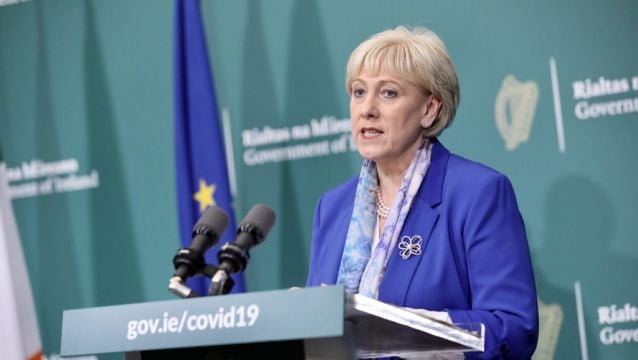The Government warned that some jobs will be permanently lost because of the pandemic, as it vowed to get 75,000 long-term unemployed people into work over the next two years.
The plan includes a target of cutting youth unemployment from its current rate of 44 per cent to 12.5 per cent by 2023.
Minister for Social Protection Heather Humphreys said that, while everyone’s route to a job is not the same, the Pathways To Work plan aims to give people the skills and confidence to get back into employment.
Through #PathwaysToWork we will:
✅ Help 75,000 Long Term Unemployed into the workforce
✅ Provide recruitment subsidies of up to €10k to employers who hire people off the Live Register
✅ Reduce Youth Unemployment
✅ More apprenticeships & paid work placements pic.twitter.com/8SiU2s20hJ— Heather Humphreys (@HHumphreysFG) July 12, 2021
Advertisement
The plan, unveiled by Taoiseach Micheál Martin in Dundalk, includes the provision of 50,000 further education and training places, 10,000 apprenticeships roles, and the ring-fencing of 1,000 places on the Community Employment and Tús programmes.
It also includes recruitment subsidies of between €7,500 and €10,000 for employers who take people off the live register.
It aims to provide 10,000 paid work placements, 4,000 of which will be reserved for young people.
We welcome today's #PathwaysToWork Strategy. Having the right skills in place is a vital part of rebuilding our economy. This strategy supports a jobs-led recovery, helping people seek sustainable career progression and advancement in key growth areas. https://t.co/GJt6NQMsnP pic.twitter.com/cieBEjWVDQ
— Skillnet Ireland (@SkillnetIreland) July 12, 2021
Advertisement
Participants on the scheme will be paid €306 per week with additional amounts payable in respect of dependent adults or children.
People claiming unemployment welfare will be offered €1,000 to take part in a training programme.
Every unemployed person will be assigned a case officer who will engage with them to help work out what suits their needs.
The plan includes 83 commitments from across Government departments.
Ms Humphreys said that, as further restrictions are eased, the number of people claiming the Pandemic Unemployment Payment (PUP) will continue to fall over the coming weeks and months.
“The reality is, however, that the journey back to employment will not be the same for all,” she added.
“Unfortunately some jobs will be permanently lost as a result of the pandemic.
“Through Pathways To Work, the Government’s focus is on ensuring those people get the help and the support that they need to return to work.
“As part of the National Economic Recovery Plan, we have set an ambitious target to have over 2.5 million people in employment by 2024 as new jobs are created.
“We want to ensure that people who are currently unemployed have the training, skills and, most importantly, the confidence to take on these new roles.
“We know from past-experience that, when economic recovery arises, it doesn’t always move at the same pace for everybody.
“We also know that the longer a person remains unemployed, the harder it is to find a new job.
“That’s why, under Pathways, we have set an ambitious target to help 75,000 long-term unemployed into the workforce by 2023.”
Today @MichealMartinTD @HHumphreysFG @SimonHarrisTD & @Damien_English launched the Government's #PathwaysToWork strategy aiming to help 75,000 long-term unemployed into work @welfare_ie @DeptofFHed
Learn more here: https://t.co/iz1si9miAJ pic.twitter.com/K1MJRdzjA1— MerrionStreet.ie (@merrionstreet) July 12, 2021
Mr Martin said the pandemic has “struck at every part of Ireland’s society and economy”.
“Over the last 16 months, our people have been tested and we have shown truly extraordinary resilience, an amazing sense of solidarity, and the spirit of community that continues to inspire,” Mr Martin added.
“The intention is that it does what it says on the tin.
“The core purpose of this strategy is to help those whose employment has been impacted by Covid-19 alongside those who had lost jobs before the pandemic struck to prepare for and acquire good, secure employment.
“In doing so this strategy makes sure that Ireland’s labour force is ready to respond to the future economic, societal and environmental challenges that we will face.
“It also sets out how recruitment subsidies would be used to help employers to hire new workers.
“Investment in human capital is going to be critical to our recovery.”







